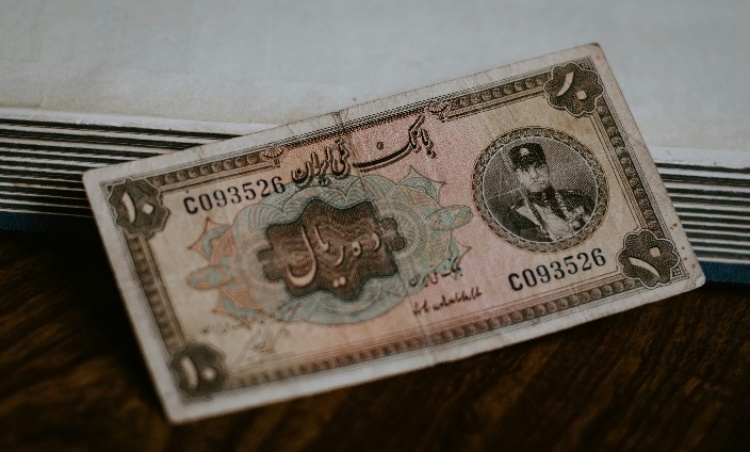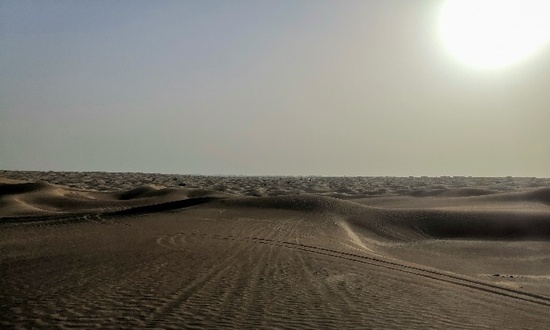أحيانًا ما يكون الكتاب المقدَّس متشددًا وأحيانًا صادمًا فيما يتعلَّق بالمال والممتلكات. عندما نفتح الكتاب المقدَّس فإننا نفعل ذلك سعيًا للتعزية وليس التعدي على نظرتنا الدنيوية، أليس كذلك؟ دع اللهيتحدَّث عن المحبة والنعمة، وشكرًا. ودعنا نحن نتحدَّث عن المال والممتلكات، ثم نفعل بها ما يسرُّنا.
نحن صادقون، وهذا ما سيقوله كثيرون منَّا.
يسأل بعض المؤمنين بعضهم أسئلة صعبة: "هل كنت تمضي وقتًا في الكلمة؟ تشارك إيمانك؟ تحفَظ عفَّتك؟" ومع ذلك، فكم مرَّة نسأل: "هل تربح المعركة ضد الماديَّة؟" أو "هل كنتَ تتلصص على هذه المجلات والمواقع الإلكترونية المغرية؟ كما تعرف، تلك التي تثير فيك الطمع؟".
الناس صرحاء فيما يتعلَّق حتى بجهادهم ضد الخطايا الجنسية أكثر من صراعهم مع الماديَّة، التي يمكن أنْ تكون الجبهة الأولى. تتحدَّث بعض الكنائس عن التخلُّص من الديون، وأنا أُثني على ذلك. ولكن يمكن أنْ تكون حرًّا من الديون، ولكنك لا تزال طماعًا وبخيلًا. لا نريد أنْ نصير ماديين أكثر ذكاءً، بل أنْ نصير تائبين عن الماديَّة ونصير "وكلاء".
يرى الرب يسوع قلوبنا ويَعرِفنا جيدًا. إنه لا يدعو التلاميذ جميعًا ليعطوا كلَّ شيء، ولكنه يدعونا لاتخاذ خطوات جذريَّة لنكسِر قيود امال والممتلكات ونتحرَّر، لكي نحيا في ربوبيَّته. إنه يدعونا جميعًا للثورة على الكنوز الثانوية لكي نرفعه في مكانة كنزنا الأول. إذا قدَّرنا أي شيء أو أي شخص أكثر مما نقدِّر الرب يسوع، فإننا لسنا بتلاميذه.
ما يمكننا أنْ نفعله بالمال لا يشير ببساطة إلى حيث توجد قلوبنا. حسب الرب يسوع، إنه يحدِّد إلى أين تذهب قلوبنا. إنْ كانت قلوبنا حيث يوجَد كنزنا (متى 6: 19-21)، فعندما ننقل كنزنا إلى موضِع آخر، فإن قلوبنا تتبعه. هذه حقيقة بارزة. إذا أردتُ قلبي في موضع ما، فعليَّ وضع مالي هناك.
عندما سأل الناس يوحنا المعمدان عما عليهم فعله لكي يثمروا ثمار التوبة، أخبرهم أنْ يشاركوا ملابسهم وطعامهم مع الفقراء. ثم دعا العشارين إلى عدم تحصيل ضرائب أكثر من المطلوب أو أخذ جباية لأنفسهم. وأخيرًا، أخبر الجنود ألا يأخذوا أموالًا لأنفسهم ولا يتهموا أحدًا باطلًا وأنْ يقنعوا برواتبهم (لوقا 3: 7-14).
لم يسأل أحدٌ يوحنا عن المال والممتلكات. ومع ذلك، فإن إجاباته أوضحت أنه لم يكن في وسعه الحديث عن التغيير الروحي من دون مخاطبة الناس عن كيف يتعاملون مع الأمور الماديَّة.
لو زارنا يوحنا المعمدان اليوم، فأي استنتاجات كان ليصلَ إليها حيال سلوكياتنا وأفعالنا تجاه المال والممتلكات؟ هل كانت الأحداث ستقنعه بأننا أتباع حقيقيون للرب يسوع؟ أم كان ليرانا نسخة مسيحية من الماديين الدنيويين المتمحورين حول ذواتهم؟
كتبت لي تريشيا ماير، المديرة التنفيذية لميكروسوفت: "الوكالة هي الحياة المسيحية. إنها تتعلَّق بما نفعله بكلِّ مَورِد مُعطى لنا، وكلِّ يوم نعيشه على الأرض، وكلِّ علاقة لدينا. والمهمة الصعبة في الوكالة هي استجماع الانضباط والإرادة لإدارة طفل المتاعب المدعو المال".
الوكيل مؤتمَن على ثروة أو عقار لكنه لا يملكها. إنه مسؤول عن إدارة تلك الثروة من أجل ما يحقق المصلحة الفضلى للمالِك وحسب رغبات المالِك. لقد أعطانا الله حياة ووقتًا ومواهب ومالًا وممتلكات وعائلة، ونعمته. وهو في كلِّ حالة يُقيِّم ما نفعله بما ائتمننا عليه.
يضمَن المالك تزويد الوكيل بموارد وسلطان للممارسة المسؤوليات المعيَّنة له. فيما يتعلَّق بالوكالة المالية، لم يزوِّدنا الله بقائمة تحقُّق قياسيَّة لنضع فيها علامات، ولكنه زوَّدنا بكلمته التي فيها مبادئ الوكالة المالية الفعالة؛ المبادئ التي علينا مصارعتها. الوكيل المسؤول يستشير المالِك ويطلُب توجيهه. وهذا يتطلب بصيرة وحكمة تفوق ما لدينا. يقول الكتاب المقدَّس: "وَإِنَّمَا إِنْ كَانَ أَحَدُكُمْ تُعْوِزُهُ حِكْمَةٌ، فَلْيَطْلُبْ مِنَ ٱللهِ ٱلَّذِي يُعْطِي ٱلْجَمِيعَ بِسَخَاءٍ وَلَا يُعَيِّرُ، فَسَيُعْطَى لَهُ" (يعقوب 1: 5).
هل ترغَب حقًّا حكمة الله وقوَّته في اتخاذ قرارات صعبة متعلقة بالوكالة (وتقيِّم قلبك)؟ اطلب منه إذًا، فهو لن يتركك في الظلمة. لقد وهبك كلمته وروحه ليرشدانك.
- "بَلِ ٱذْكُرِ ٱلرَّبَّ إِلَهَكَ، أَنَّهُ هُوَ ٱلَّذِي يُعْطِيكَ قُوَّةً لِٱصْطِنَاعِ ٱلثَّرْوَةِ" (تثنية 8: 18).
- "ٱلرَّبُّ يُفْقِرُ وَيُغْنِي. يَضَعُ وَيَرْفَعُ" (1 صموئيل 2: 7).
- "وَٱلْغِنَى وَٱلْكَرَامَةُ مِنْ لَدُنْكَ، وَأَنْتَ تَتَسَلَّطُ عَلَى ٱلْجَمِيعِ" (1 أخبار الأيام 29: 12).
الوكالة هي الحياة في نور هذه الحقائق. إنها الحياة بوعي لكوننا مديرين ولسنا مالكين لما ائتمننا الله عليه في هذه الفترة القصيرة. تُظهر طريقة تعاملنا مع المال والممتلكات مَن نؤمن حقًّا أنه المالِك؛ الله أم نحن.
قدَّم جون ويسلي أربعة أسئلة ليساعدنا على تقرير كيف ننفق المال. لاحظ كيف تنساب الثلاثة الأخيرة من الأول مباشرة.
- هل أتصرَّف في إنفاق المال وكأنني المالك، أم أتصرَّف كوكيل الرب؟
- ما الذي يتطلبه مني الكتاب المقدَّس لأنفق المال بهذه الطريقة؟
- هل يمكنني تقديم هذه المشتريات كذبيحة للرب؟
- هل سيكافئني الله على هذه المصروفات عند قيامة البار؟
إنْ كنَّا نؤمن فعلًا أنَّ الله مالِك كلِّ شيء، فعلينا أنْ نسأله باستمرار: "ماذا تريد مني أنْ أفعَل بمالك وممتلكاتك؟" وألا يجب أنْ نكون منفتحين على إمكانية أنه ربما يطلُب منَّا مشاركة جزء كبير من أصوله مع هؤلاء المحتاجين أكثر منَّا؟
لقد تحدَّثتُ مع رجل كان قرأ كتابي عن العطاء "The Treasure Principle" (مبدأ الكنز). إنه يملك عملًا خاصًا يدرُّ دخلًا جيدًا ويؤمِن للمرة الأولى أنه يعرِف سبب مباركة الله له ماليًا. إنه ليس من أجل أنْ يمكنه قيادة سيارة حديثة والعيش في منزل أفضَل. ولكن من أجل العطاء لبناء ملكوت الله. لقد أخبرته عن مجموعات إرساليات متعددة ومشروعات لمناهضة الإجهاض، وسبُل لمساعدة مسيحيين مُضطهدَين. أتمنى لو أمكنكم سماع الحماس في صوته بينما مضى مقررًا تسييل المزيد من الأصول الأرضية وتوسيع نطاق استثماره الأبدي بصورة مذهلة.
لقد واصلَ ذلك الرجل على هذا المنوال وأعطى المزيد والمزيد عبْر سنوات. إنه ليس عَزوفًا ولا يَشعُر بالذنب. لقد تحرَّر من رباطات الماديَّة وصار متحمسًا لملاحقة الركب بكل ما أوتي من قوة! إنه يشبه رجلًا وجَدَ كنزًا ثمينًا مُخفىً في حقل "وَمِنْ فَرَحِهِ مَضَى وَبَاعَ كُلَّ مَا كَانَ لَهُ وَٱشْتَرَى ذَلِكَ ٱلْحَقْلَ" (متى 13: 44). هل نشعُر بالشفقة على الرجل من أجل تضحيته؟ لا! بل نحسده من أجل كنزه وفرحه.
استمِع إلى الله إنْ كان يتحدَّث إليك. لا شيء يمضي كلمح البصر مثل لحظة تبكيت. لا تؤجِّل أبدًا الطاعة. بمجرَّد أنْ نقِف قبالة عرشه، سيكون الوقت قد فات لنعود ونسترد الفرص التي أهدرناها في حياتنا. سنعرف كيف كان علينا أنْ نعيش بالضبط حينما نحدِّق في عيني المسيح الذي هو كنزنا. لقد وهبنا الله كلمته حتى لا يكون علينا الانتظار لحين نموت لندرِك. ولقد وهبنا روحه ليقوينا لنعيش بهذه الطريقة الآن.
What Is Eternity-Minded Stewardship?
Concerning money and possessions, the Bible is sometimes extreme, sometimes shocking. When we come to Scripture, it’s for comfort, not for assaults against our worldview, right? Let God talk about love and grace, thank you. Let us talk about money and possessions—then do with them whatever we please.
Were we honest, that’s what many of us would say.
Some believers ask each other tough questions: “Have you been spending time in the Word? Sharing your faith? Guarding your sexual purity?” Yet how often do we ask, "Are you winning the battle against materialism?” Or, "Have you been peeking at those tempting magazines and websites? You know, the ones that entice you to greed?”
People are more open even about their sexual struggles than about battling materialism, which may be the final frontier. Some churches do talk about getting out of debt. I applaud that. But you can be debt free and still be stingy and greedy. We don’t need to become smarter materialists; we need to repent of materialism and become smart stewards.
Jesus sees our hearts and knows us well. He doesn’t call all disciples to give away everything. He does call us to take radical action that breaks our bondage to money and possessions, freeing us to live under His lordship. He calls all of us to dethrone all secondary treasures in order to elevate Him as our primary treasure. If we value anything or anyone more than we value Jesus, we are not His disciples.
What we do with our money doesn’t simply indicate where our heart is. According to Jesus, it determines where our heart goes. If our heart is where our treasure is (Matthew 6:19-21), then when we move our treasure somewhere else, our heart follows. This is a remarkable truth. If I want my heart somewhere, I need to put my money there.
When people asked John the Baptist what they should do to bear the fruit of repentance, he told them to share their clothes and food with the poor. Then he instructed tax collectors not to collect and pocket extra money. Finally, he told soldiers not to extort money and accuse falsely, and to be content with their wages (Luke 3:7-14).
No one had asked John about money and possessions. Yet his answers showed that John couldn’t talk about spiritual change without addressing how people handle material things.
If John the Baptist were to visit us today, what conclusions would he draw about our attitudes and actions toward money and possessions? Would the evidence convince him we are true followers of Jesus? Or would he see us as baptized versions of the world’s self-preoccupied materialists?
Microsoft executive Tricia Mayer wrote me, “Stewardship is the Christian life. It is about what we do with every resource given to us, every day we walk the earth, and every relationship we have. The difficult task of stewardship is mustering the discipline and will to manage the problem child called money.”
A steward is entrusted with wealth or property that does not belong to him. It’s his responsibility to manage that wealth in the best interests of, and according to the stated wishes of, the owner. God has given us life, time, talents, money, possessions, family, and His grace. In each case He evaluates what we do with what He’s entrusted to us.
The steward is granted by the owner sufficient resources and the authority to carry out his designated responsibilities. When it comes to financial stewardship, God hasn’t handed us a standardized checklist to mark off. Rather, He has provided us His Word with principles for effective financial stewardship—principles we have to wrestle with. A responsible steward consults the Owner, seeking His direction. This requires insight and wisdom far beyond our own. Scripture says, “If any of you lacks wisdom, he should ask God, who gives generously to all without finding fault” (James 1:5).
Do you truly desire God’s wisdom and empowerment in making difficult stewardship decisions (and evaluating your own heart)? Then ask. He won’t leave you in the dark. He has given you His Word and His Spirit to guide you.
- And you shall remember the LORD your God, for it is He who gives you power to get wealth (Deuteronomy 8:18).
- The LORD makes poor and makes rich; He brings low and lifts up (1 Samuel 2:7).
- Both riches and honor come from You, and You reign over all (I Chronicles 29:12).
Stewardship is living in the light of these truths. It’s living with the awareness that we are managers, not owners, of what God has entrusted to us for this brief season. How we handle money and possessions demonstrates who we really believe is their true owner—God or us.
John Wesley offered four questions to help decide how to spend money. Notice how the last three flow directly out of the first one:
- In spending this money, am I acting as if I owned it, or am I acting as the Lord’s trustee?
- What Scripture requires me to spend this money in this way?
- Can I offer up this purchase as a sacrifice to the Lord?
- Will God reward me for this expenditure at the resurrection of the just?
If we really believe God is the owner of everything, shouldn’t we regularly be asking Him, “What do you want me to do with your money and your possessions?” And shouldn’t we be open to the possibility that He may want us to share large portions of His assets with those whose needs are greater than ours?
I spoke with a man who’d read The Treasure Principle, my book on giving. He owns a profitable business and believes for the first time that he knows why God has blessed him financially. It’s not so he can drive nicer cars and live in a nicer house. It’s to give it to build God’s kingdom. I told him about several different missions groups and prolife projects, and ways to help persecuted Christians. I wish you could have heard the excitement in his voice as he walked away determined to liquidate more earthly assets and dramatically expand his eternal investment portfolio!
This man followed through, and has given more and more over the years. He isn’t reluctant and guilt-ridden. He’s been liberated from material bondage, and is thrilled to have gotten onboard with what matters! He’s like the man who finds priceless treasure hidden in the field, “Then in his joy he goes and sells all that he has and buys that field” (Matthew 13:44). Do we pity the man for his sacrifices? No! We envy him both for his treasure and his joy.
If God is speaking to you, listen. Nothing’s more fleeting than the moment of conviction. Never procrastinate obedience. Once we stand before His throne, it will be too late to go back and reclaim a lifetime of squandered opportunities. Gazing into the eyes of the Christ we treasure, we’ll know exactly how we should have lived. God has given us His Word so we don’t have to wait to die to find out. And He’s given us His Spirit to empower us to live that way now.
Photo: Unsplash




